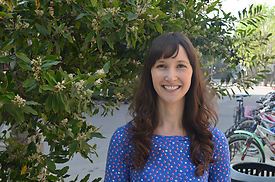June 11, 2019 | News | Suessmilch Lecture
Family Policies, Income Inequality, and Women’s Social Location: Mothers’ Employment in 22 Countries
On June 18th, 2019, Jennifer Hook from the University of Southern California, gave a lecture about the influence of family policies and income inequalities on mothers in 22 countries.
Abstract:
There is considerable debate about the effects of family policies on women’s employment. We build on recent work highlighting the context dependence of family policy effects and the heterogeneity of effects within countries by women’s educational attainment. We hypothesize that family policies interact with income inequality to differentially affect the employment outcomes of mothers by educational attainment. We develop hypotheses about two most commonly studied family policies – early childhood education and care (ECEC) and paid parental leave.
We test these hypotheses with data from EU-LFS and CPS 1992-2016 (n = 22 countries, 280 surveys, 1.06 million mothers of young children) combined with an original collection of country-year indicators. Using fixed effects models, we find that as ECEC expenditure increases within countries over time, mothers’ employment increases. This positive effect, however, is most pronounced for the full-time employment of mothers with a tertiary degree in high inequality contexts.
As the length of paid parental leave increases, mothers’ employment generally decreases. This negative effect, however, is most pronounced for the employment of mothers with a tertiary degree in low inequality settings. We conclude that income inequality is a key context for understanding both heterogeneity in effects of family policies among mothers and variation in policy effects across contexts.

© Photo: Jennifer Hook
About the Speaker
Jennifer Hook (Ph.D. University of Washington, 2006) is Associate Professor of Sociology at the University of Southern California. Her research areas include gender, family demography, inequality, work-family, social policy, and comparative sociology. Hook focuses on how social contexts, particularly social policies and opportunities in the labor market, impact individuals and families. Her recent work examines the influence of country context on women's employment, fathers' time with children, and the division of household labor, as well as the impacts of state policy and practice on foster children's outcomes and the economic vulnerability of parents involved with the child welfare system.
Hook's work has been funded by the Eunice Kennedy Shriver National Institute of Child Health and Human Development, the Sloan Foundation, and the Alexander von Humboldt Foundation. In AY 2018-19 she was a fellow at the WZB Berlin Social Sciences Center. She has served on editorial board of the American Journal of Sociology, Journal of Marriage and Family, Social Forces, and Social Problems. From 2015-2018 she served as Director of Graduate Studies of the Sociology Department.
Time and Venue
Tuesday, June 18, 2019, 3 p.m. at the Institute's Auditorium